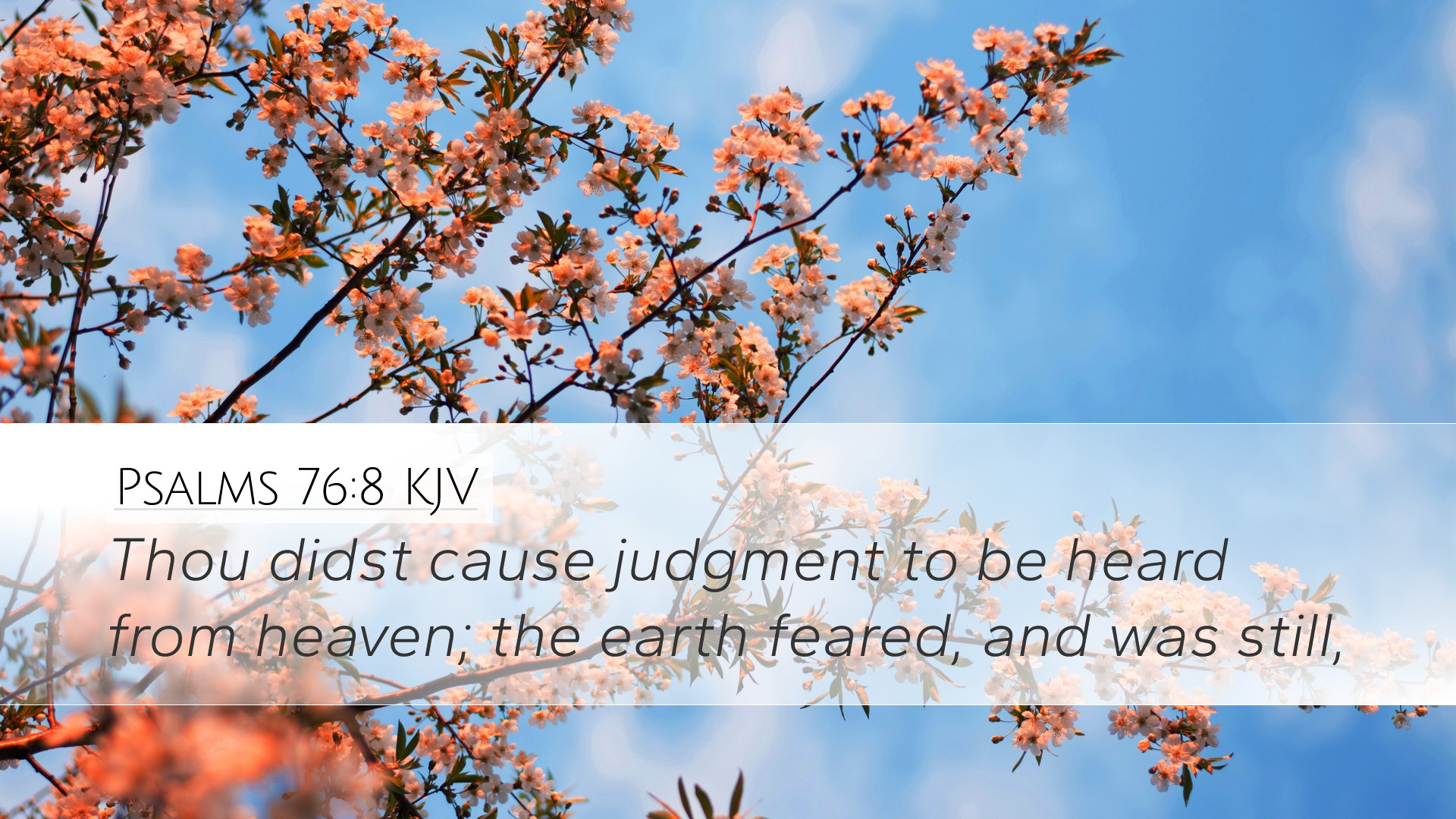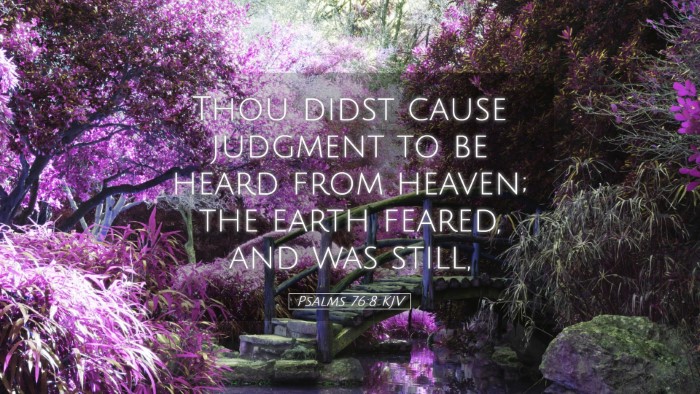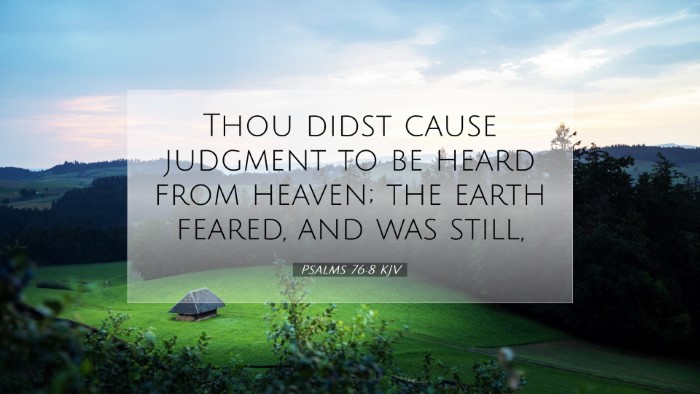Psalms 76:8 Commentary
Bible Verse: "Thou didst cause judgment to be heard from heaven; the earth feared, and was still."
Introduction
Psalm 76 is a reflection on God's sovereignty and His powerful intervention in human history. This particular verse, Psalms 76:8, emphasizes God's authority in bringing judgment and peace during times of turmoil. It is significant for pastors, theologians, and students of Scripture to understand the profound implications of divine judgment and the resulting peace that stems from God's actions.
Contextual Overview
The context of Psalm 76 situates it within a framework of praise for God's might and the peace He brings. The psalmist recounts both the fear that God's judgment instills in the earth and the resulting stillness that follows. This verse is pivotal in understanding the broader themes of divine justice and mercy that run throughout the Psalms.
Commentary Insights
Matthew Henry's Commentary
According to Matthew Henry, this verse highlights that divine judgment emanates from heaven. Henry emphasizes the awe that such judgment inspires among humanity, suggesting that when God speaks, the earthly realm is compelled to silence. The phrase "the earth feared" indicates not only a reverence but also a recognition of God’s ultimate authority over creation, prompting stillness and reflection among His creation.
Albert Barnes' Notes
Albert Barnes provides a detailed insight into the interpretation of this verse, suggesting that the communication of divine judgment serves as a divine response to human actions. He stresses that the stillness of the earth signifies a profound acknowledgment of God’s sovereignty. In times of chaos or turmoil, when God’s voice is heard, it brings a calming effect over the fears of humanity. Barnes interprets the phrase "judgment to be heard from heaven" as God's direct intervention, assuring believers that God's omniscience addresses human affairs.
Adam Clarke's Commentary
Adam Clarke approaches this verse with a historical lens, discussing the occasions in Israel's history where divine judgment was palpably felt. He points out that the stillness following God's judgment denotes not just absence of conflict but rather a divine peace that follows God’s intervention. Clarke also notes the significance of heaven as the source of judgment, highlighting that this aligns with the understanding of God as transcendent and intimately involved in earthly affairs.
Theological Reflection
The theological implications of Psalms 76:8 extend to several key areas:
- Divine Sovereignty: This verse underscores the belief that God is in control of all creation, with His judgments serving as a reminder of His ultimate authority.
- Fear of the Lord: The reaction of fear from the earth can be seen as a healthy reverence for God's power and might, encouraging believers to live in conscious awareness of His holiness.
- Peace in Chaos: The transition from fear to stillness is particularly meaningful. It grants assurance that God can provide peace even when circumstances appear overwhelming.
Application for Believers
For contemporary believers, Psalms 76:8 serves as a powerful reminder of the need to trust in God's ability to calm the storms of life. In moments of personal crisis or global unrest, this verse invites reflection on God's capacity to bring peace amid chaos.
Key Applications:
- Trust in God's Judgment: Believers are called to have faith in God's righteous judgments, believing that He will act for the good of His people.
- Embrace Stillness: Amid life's turbulence, finding moments of stillness can be transformative, allowing for reflection and deeper communion with God.
- Encourage Reverence: Cultivating a spirit of reverence towards God is essential for spiritual growth and understanding of His nature.
Conclusion
Psalms 76:8 presents a multifaceted view of God's interaction with the world. The insights drawn from public domain commentaries illuminate its relevance across different contexts, encouraging a deeper understanding of divine judgment and peace. As pastors, students, and scholars engage with this text, they are invited to consider the powerful implications of God's sovereignty, the appropriate human response of reverence, and the quiet assurance of His calming presence.


